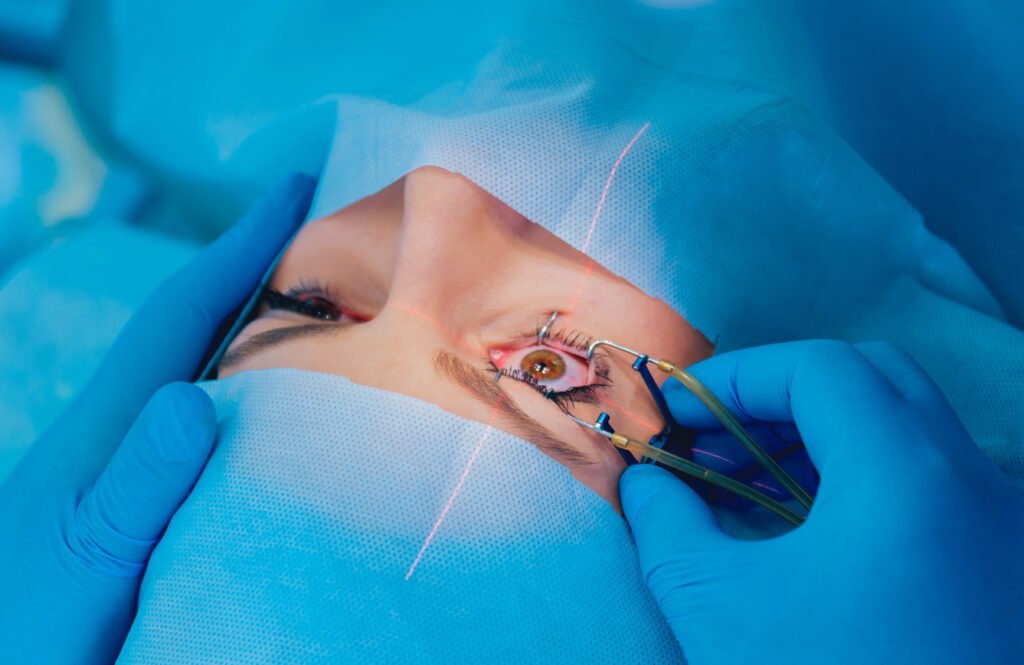The cornea is the transparent outer layer of the eye that plays a vital role in focusing vision. Conditions such as scars, dystrophies, infections, or keratoconus can affect its clarity and function. Corneal surgery, including procedures like superficial keratectomy, removes damaged corneal tissue and restores a smooth surface, improving vision and comfort.

Depending on the diagnosis, treatment may involve:
Superficial keratectomy: Removing irregular or scarred corneal tissue.
Phototherapeutic keratectomy (PTK): Using an excimer laser to smooth the corneal surface.
Corneal transplantation: Partial or full-thickness grafts for severe cases.
These procedures help restore transparency, improve corneal shape, and enhance visual outcomes.
You may be a candidate if you:
A detailed evaluation with corneal imaging will determine the best treatment for your condition.
Your consultation includes diagnostic tests such as corneal topography, pachymetry, and slit-lamp examination. These studies allow our specialists to assess the thickness, shape, and clarity of the cornea, and recommend the most appropriate surgical or non-surgical treatment.

Patients are advised to stop wearing contact lenses before testing and surgery. Depending on the procedure, you may be prescribed preoperative drops or medications. On the day of surgery, avoid eye makeup and follow your doctor’s instructions carefully.
Superficial Keratectomy/PTK: After numbing drops, the surgeon carefully removes damaged corneal tissue or uses a laser to resurface the cornea.
Corneal Transplantation: Diseased corneal layers are replaced with healthy donor tissue.
Procedures are typically performed under local anesthesia, are painless, and are completed on an outpatient basis.
Entre los principales beneficios destacan:
Recovery depends on the type of surgery. After keratectomy, most patients notice clearer vision within days to weeks. After corneal transplantation, recovery may take longer, with vision gradually improving over months. Prescribed drops and protective measures are essential during healing.
Follow-up visits are scheduled the day after surgery, at one week, and then periodically over the following months. These appointments ensure proper healing, monitor corneal clarity, and allow adjustment of medications as needed.
No, numbing drops and local anesthesia keep you comfortable.
It depends — keratectomy often improves vision in days, while corneal transplants require more time.
In most cases, yes, though certain conditions may require long-term management.
Typically one eye at a time, depending on the condition.
Specialized contact lenses or cross-linking may be options.

Are corneal problems affecting your vision? At Punto Visión Monterrey, our specialists provide advanced treatments including keratectomy and corneal surgery to restore clarity and comfort.